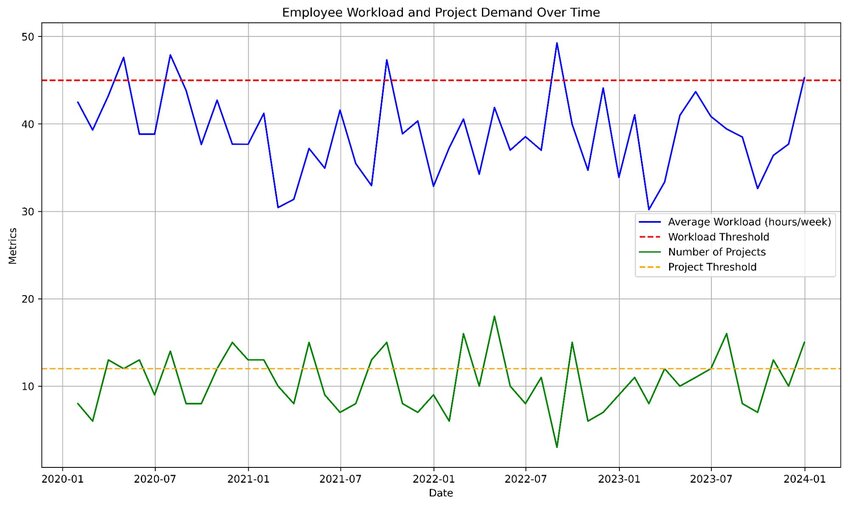July 14th, 2024
9 Data Analyst Skills to Distinguish Yourself in 2024
By Rahul Sonwalkar · 9 min read

According to some estimates, 150 zettabytes of data will need analysis by 2025.
This figure alone is enough to explain the unprecedented demand for data analysts today. It can also explain why the demand for these scientists has far surpassed supply. There’s simply too much data and not enough skilled professionals to analyze it.
However, this can also be good news for you. Gain the most sought-after data analysis skills, and you’ll be able to choose which lucrative job opportunities to pursue. To help you kickstart your career as a data analyst (or advance it), we’ve created a list of the top skills you should learn.
Why Data Analysts Are More Important Today Than Ever Before
Data-driven decision-making is all the rage these days. And how could it not be? It allows businesses to make informed decisions based on concrete evidence rather than gut feelings or guesswork. But to use such decision-making, you need one thing: data.
That’s why the data analysis process plays a crucial role in various industries. Finance, marketing, healthcare, you name it, and it can benefit from insights derived from data analysis.
9 Skills You Should Develop as a Data Analyst
On the surface, analyzing data might seem like an easy job. You just need to know how to work with numbers and spreadsheets, right?
Not exactly.
Being a successful data analyst calls for a diverse skill set consisting of both soft and technical skills. Here are the nine essential data analysis skills aspiring data analysts should develop to excel in this field:
1. Statistical Programming
2. Structured Query Language (SQL)
3. Spreadsheets
4. Data Cleaning and Preparation
5. Machine Learning and Artificial Intelligence
6. Data Visualization
7. Communication Skills
8. Problem-Solving
9. Domain Knowledge
Statistical Programming
Data analysis and statistical programming go hand in hand. You need to pick up this skill if you plan to perform advanced data analyses that programs like Microsoft Excel can only dream of.
By “picking up” this skill, we mean learning statistical programming languages. Choose either Python or R and start learning how to write programs that can clean, analyze, and visualize complex data sets.
Structured Query Language (SQL)
While on the topic of the programming languages you must learn, we can’t leave out Structured Query Language (SQL). To put it plainly, you won’t get anywhere in data science without knowing this language. That’s why data analyst interviews often include hands-on SQL testing to assess the candidate’s ability to manipulate data effectively.
The good news is that this skill is among the easiest to acquire for aspiring data scientists and analysts. In fact, you might be able to learn it on your own. Throw data analysis tools like Julius AI into the mix to help you analyze SQL databases, and you’ll be a pro in no time.
Spreadsheets
Yes, we did say that data analytics isn’t all about spreadsheets. But that doesn’t mean you won’t need this skill for your data analyst job.
This is the basic skill you need, as there are still many companies that prefer “old-school” reports presented using traditional spreadsheet tools (e.g., Excel and WPS Spreadsheets). But hey, learn all the other skills on our list, and you might be able to bring your employer up to speed on more advanced data analytics tools.
Data Cleaning and Preparation
Future data analysts should know that roughly 80% of your data analysis projects will consist of cleaning and preparing data. Now, this task isn’t particularly enjoyable for most people, but as you can see, it’s unavoidable.
Basically, it consists of detecting (and correcting) errors in the data, resolving missing and inconsistent data, and preparing it for categorical and statistical analysis. Think of this as a fun problem-solving exercise, and you’ll be well on your way to mastering this essential skill (and perhaps even enjoy doing it!).
Machine Learning and Artificial Intelligence
Artificial intelligence (AI) and its subset, machine learning (ML), are practically everywhere in data science. They’re used to develop algorithms and models that can learn independently and make decisions based on data.
So, it shouldn’t be surprising that AI and ML skills are also necessary for data analytics, where they help build algorithms for finding patterns in big data sets.
Data Visualization
After gaining valuable insights through data analysis, your job isn’t necessarily over. The next step is transforming all that raw data into a more digestible and visually appealing format.
That’s where data visualization comes into play. Using data visualization tools like Julius AI, you can successfully present your findings to every employee in your organization, from your peers to the C-suite.

Data visualization example to help a company determine when to hire more employees based on workload and project demand. Created with Julius AI
Communication Skills
Being a successful data analyst isn’t all about technical know-how. Some soft skills will undoubtedly come in handy during your day-to-day activities.
Communication skills top this list. These skills include speaking, explaining, writing, and (active) listening – all the “tools” you might need to effectively convey complex technical information to non-technical stakeholders.
Problem-Solving
Let’s not sugarcoat it. A typical day of a data analyst is plagued with bugs, issues, and roadblocks of all kinds. If you don’t work on your critical thinking and problem-solving skills, you’re looking at constant frustration and inefficiency in your work.
Domain Knowledge
As mentioned, data analysts are needed across various industries, from retail to healthcare. While no one expects you to become a jack-of-all-trades, having a basic understanding of the industry you’re working in can greatly enhance your ability to analyze data effectively.
If you’re applying for a job in the financial industry, you might benefit from learning about concepts like risk management, financial modeling, and market trends. Similarly, a job in the manufacturing industry calls for a basic understanding of concepts like supply chain management and quality control.
Tips for Learning Data Analysis Skills
Suppose you’re just getting started in data analysis. If that’s the case, the journey ahead can appear quite daunting. But it doesn’t have to! Follow these tips, and you’ll acquire the necessary skills in no time:
- Take full advantage of online resources (for learning and practicing)
- Work on your skills daily
- Practice real-world scenarios
- Join an online community of aspiring data analysts
- Don’t get overwhelmed; work on your skills one by one
Distinguish Your Data Analysis Resume with Julius AI
Interestingly, some data analysts fear that AI might eventually take their jobs. But the truth is that AI can enhance a data analyst’s capabilities rather than replace them.
So, team up with Julius AI to become a world-class data analyst who can help companies achieve all their business objectives.
Frequently Asked Questions (FAQs)
What is a data analysis skill?
A data analysis skill is the ability to collect, clean, interpret, and visualize data to uncover trends, solve problems, and make informed decisions. These skills often combine technical proficiency (e.g., statistical programming, SQL) with critical thinking and effective communication to present insights clearly.
What qualities do you need to be a data analyst?
To excel as a data analyst, you need a blend of technical and soft skills, including analytical thinking, attention to detail, problem-solving abilities, and proficiency in tools like SQL, Excel, and data visualization platforms. Strong communication and the ability to work with cross-functional teams are equally important for conveying complex insights effectively.
What are the basics of data analysis?
The basics of data analysis include understanding how to collect relevant data, clean and prepare it for analysis, and use statistical techniques to identify trends and patterns. Data visualization and effective reporting are also fundamental to presenting findings in a way that supports decision-making.
What qualifies you to be a data analyst?
To qualify as a data analyst, you typically need a foundation in mathematics, statistics, or a related field, along with proficiency in tools like SQL, Excel, or Python. Practical experience in handling real-world datasets and a strong understanding of business or domain-specific knowledge further strengthen your qualifications.
